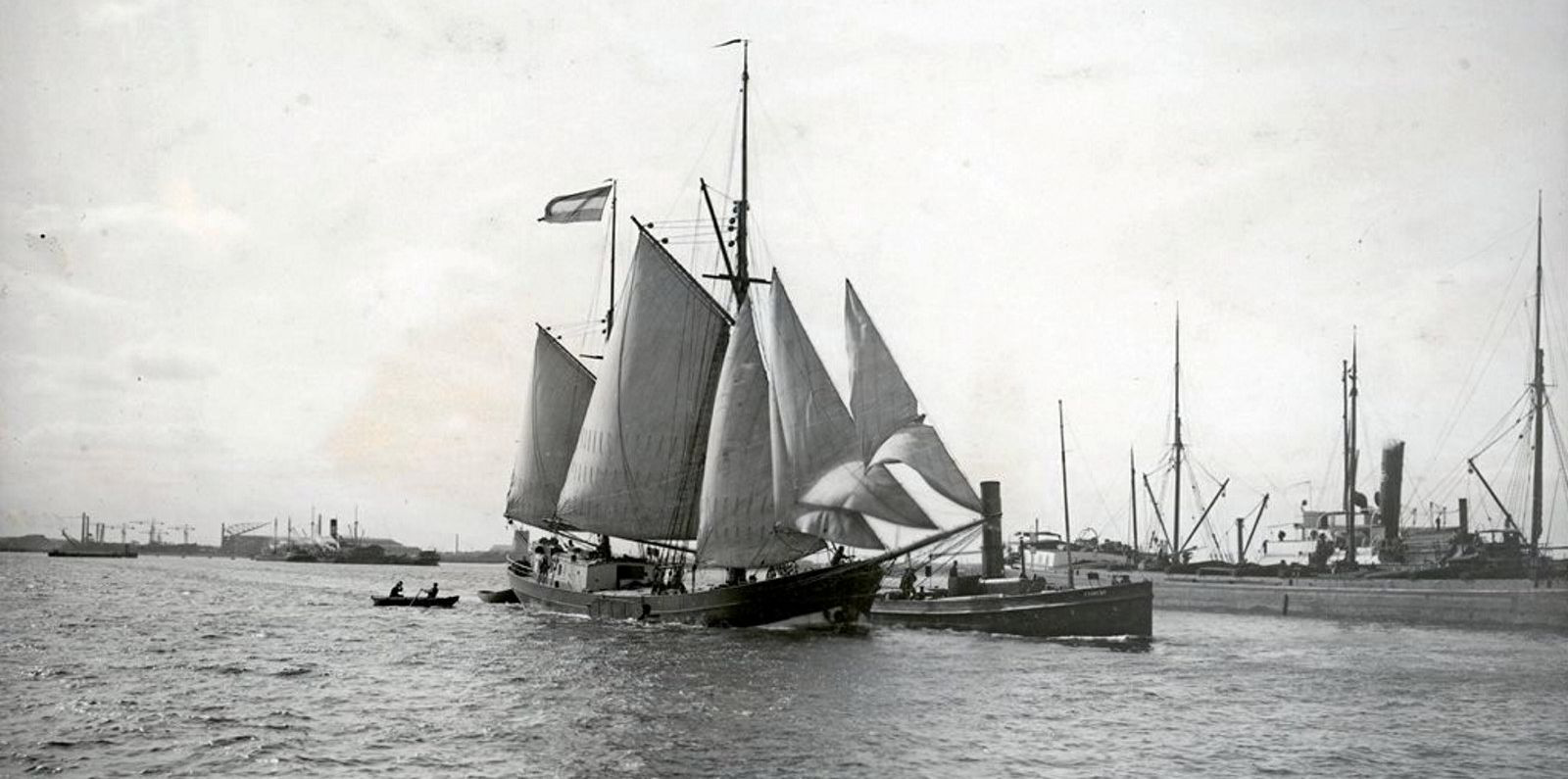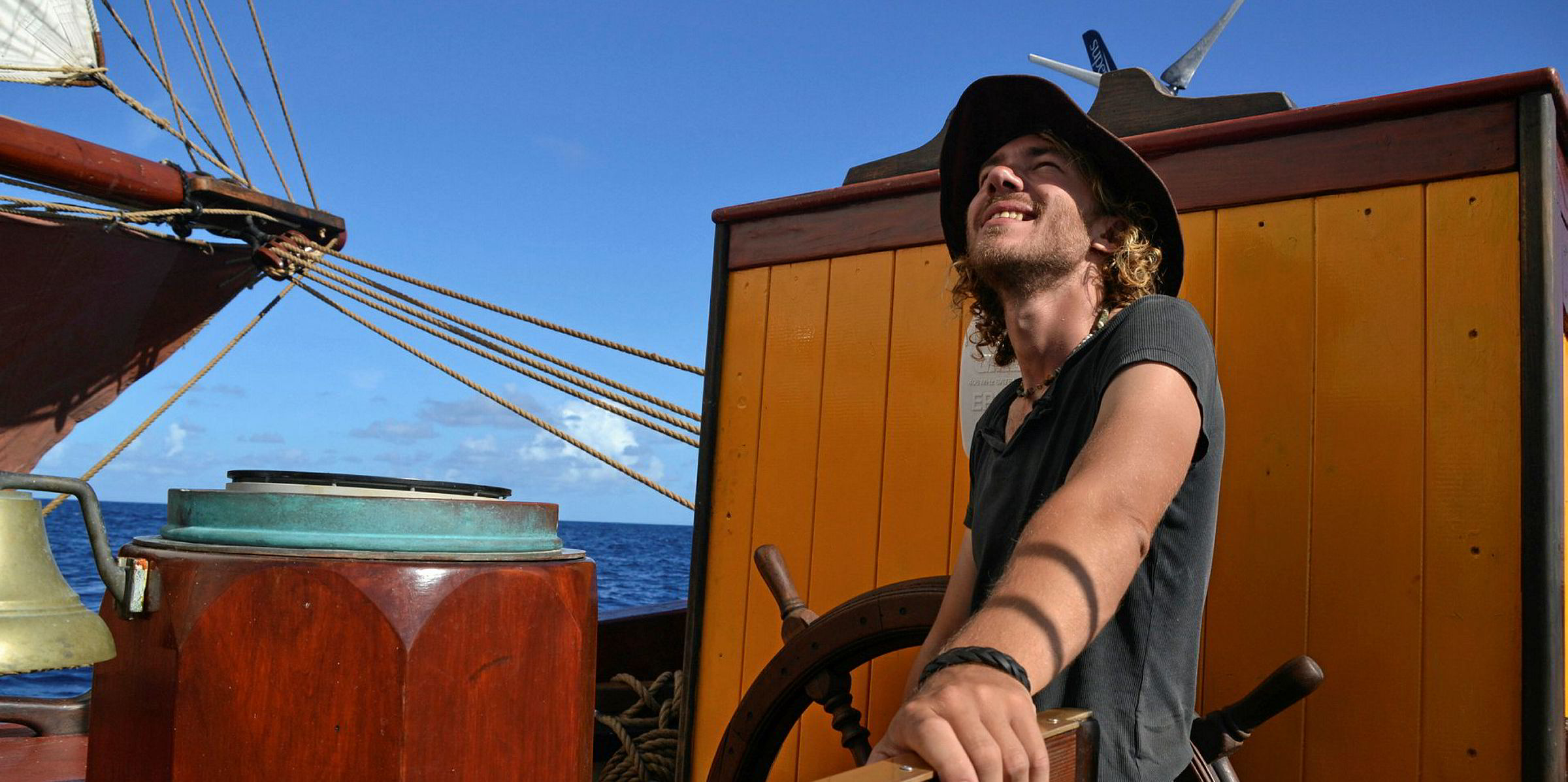Dutch zero-carbon operation EcoClipper has acquired its first ship for conversion into a sail-powered cargo vessel.
The company, set up by Jorne Langelaan in 2018, said it now owns the Dutch clipper De Tukker, launched in 1912.
The idea is to establish sustainable shipping in the North Sea with the veteran vessel.
The clipper will need a retrofit and will begin providing trade and passenger travel under sail in the first half of 2022.
De Tukker was for many years a coastal trader.
By the 1980s it had become a Dutch sail training vessel, well-known for its work with disadvantaged youngsters.
But the need for major repairs brought this to an end in 2012.
A new fleet coming
The ship will be the first in a proposed fleet of EcoClipper vessels to include newbuildings and retrofitted craft.
De Tukker's retrofit will include work on the hull, a new deckhouse and upgrades to its systems and rigging.
The vessel, with a barge-shaped hull, will be able to carry about 80 cbm of goods, or between 50 and 70 tonnes.
Accommodation will also be available for up to 12 paying guests.
While sailing vessels do already operate on the North Sea, there are none currently dedicated to a fixed liner service for sustainable shipping.
Langelaan said: “We have already been approached by a wide range of companies looking to ship their product in a sustainable manner. With this purchase EcoClipper will be in a good position to begin providing this service in an environmentally friendly way.”
Financing drive under way
EcoClipper has recently launched a financing campaign to build up a fund for its new ships.
In 2020, the company said it was awaiting its first quotes from shipyards interested in building the fleet of engineless cargo vessels.
The company had begun talks in June with 10 European shipbuilders about the EcoClipper500 sailing ship prototype.
EcoClipper is planning on a build time of between 12 and 14 months.
The newbuilding will have three square-rigged masts. At least 23 sails will present 976 square metres of canvas to the wind.
The 59-metre vessels will carry 500 tonnes of cargo. They will have a crew of 12, as well as 36 trainees, plus 12 passengers in six cabins.
EcoClipper is looking at three routes with fixed schedules. The design is especially suitable for carrying general and project cargo, the company believes.






